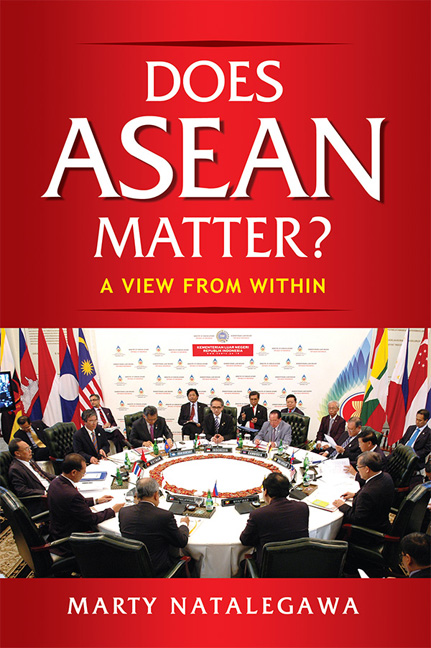Book contents
- Frontmatter
- Dedication
- Contents
- Introduction
- 1 Statecraft and Diplomacy in a World Transformed: 1967–2017
- 2 Southeast Asia: From Trust Deficit to Strategic Trust
- 3 ASEAN and the Region: From Cold War Pawn to ASEAN Centrality
- 4 From State-centric to People-centred ASEAN
- 5 ASEAN: Wither or Prosper?
- Appendix 1 Guidelines for the Implementation of the DOC
- Appendix 2 Declaration of the East Asia Summit on the Principles for Mutually Beneficial Relations
- Appendix 3 Statement of Asean Foreign Ministers on Asean's Six-Point Principles on the South China Sea
- Index
- About the Author
- Plate section
2 - Southeast Asia: From Trust Deficit to Strategic Trust
Published online by Cambridge University Press: 08 June 2019
- Frontmatter
- Dedication
- Contents
- Introduction
- 1 Statecraft and Diplomacy in a World Transformed: 1967–2017
- 2 Southeast Asia: From Trust Deficit to Strategic Trust
- 3 ASEAN and the Region: From Cold War Pawn to ASEAN Centrality
- 4 From State-centric to People-centred ASEAN
- 5 ASEAN: Wither or Prosper?
- Appendix 1 Guidelines for the Implementation of the DOC
- Appendix 2 Declaration of the East Asia Summit on the Principles for Mutually Beneficial Relations
- Appendix 3 Statement of Asean Foreign Ministers on Asean's Six-Point Principles on the South China Sea
- Index
- About the Author
- Plate section
Summary
Southeast Asia has been a region transformed.
In 1967 the region was afflicted with wars and conflicts; tensions and instability; poverty and underdevelopment. Five decades since, while tensions and instability still permeate, and the battle against the scourge of poverty is yet to be completely won, the region is largely free from war and has made economic strides that are the envy of much of the world.
Anchoring these developments has been a fundamental transformation in the nature and dynamics of relations among the countries of the region — the transformation of “trust deficit” to “strategic trust”.
What have been some of the conditions conducive for such transformation? What has made this transformation possible? Are such conditions likely to persist over the next fifty years? Indeed, even if they do continue to exist, are such conditions still of relevance in the face of possible new types of challenges in the next fifty years? Will ASEAN's current strengths still be of relevance in the world of tomorrow? Of equal interest, has ASEAN simply been the manifestation, the embodiment and beneficiary of the positive transformation of Southeast Asia, or has ASEAN actually facilitated and made such transformation possible? Has ASEAN been a passive bystander or a determinant of the region's dynamics? Or, indeed, has it been both — ASEAN as peace dividend and facilitator for peace? In other words, while the birth of ASEAN itself was made possible due to initial and fragile dynamics towards positive change, ASEAN in turn helped to consolidate, nurture and accelerate these emerging positive dynamics. ASEAN helped turn what was probable to possible, and what was possible into reality.
There is little doubt, however, that the fifty years of ASEAN's existence coincided with some of the most fundamental transformations in Southeast Asia's milieu — the conversion of trust deficit to strategic trust, and the conversion of a culture of war to a culture of peace.
Prior to 1967, Southeast Asia had been a region marked by deep tensions, distrust and, indeed, open conflict. Prior to Western colonial rule, relations among the kingdoms and entities then existent in Southeast Asia were not entirely devoid of conflict. Such conditions, the divisions inherent in Southeast Asia and the complex diversities prevalent, provided optimum settings for their exploitation that enabled Western colonial rule to take hold.
- Type
- Chapter
- Information
- Does ASEAN Matter?A View from Within, pp. 14 - 69Publisher: ISEAS–Yusof Ishak InstitutePrint publication year: 2018



